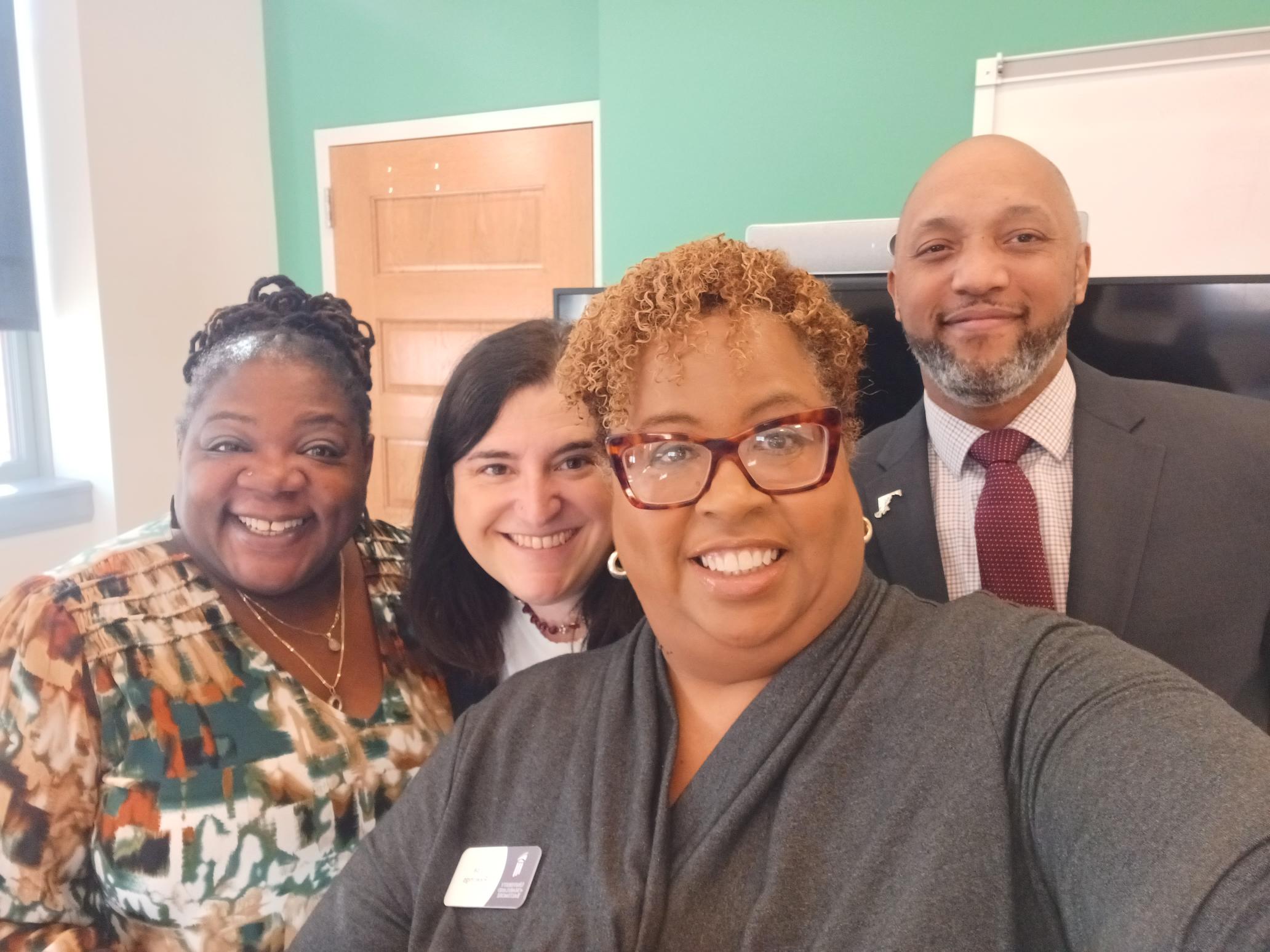4th & Goal Program Supports Adult Learners Pursuing High School Diplomas
November 14, 2024 Lisa Rawlings
UMB Workforce Initiatives hosts the Maryland Department of Labor’s Division of Workforce Development and Adult Learning to share new GED initiative.
Photo: Left to right, Diana Onafalugo, Baltimore City Mayor's Office of Employment Development; Laura Ostrowski, Maryland Division of Workforce Development & Adult Learning; Lisa Rawlings, UMB Workforce Initiatives and MAACCE president; and John Feaster, III, deputy assistant secretary at Maryland's Division of Workforce Development and Adult Learning
Last month, the Maryland Department of Labor's Division of Workforce Development and Adult Learning (DWDAL) launched a new initiative that targets adult learners who have passed three of the four GED tests required to earn a Maryland high school diploma. Recently, at the UMB Community Engagement Center, local adult learning programs got to hear all about it.
The initiative, titled 4th & Goal, provides targeted support and outreach to the approximately 3,500 Maryland residents with one more test to pass. The initial investment is $250,000 to support 250 learners over two years. Eligible programs can win grants of up to $25,000 to pay for tutoring, outreach, and other learner support services.
UMB Workforce Initiatives and the Maryland Association for Adult, Community and Continuing Education (MAACCE) collaborated to host DWDAL on Wednesday, Nov. 13, to share this initiative with GED programs in Baltimore City. Antoinette Kennedy, senior director of Adult Education Programs at the South Baltimore Learning Center in South Baltimore, found the meeting useful. She said, "The event was very informative, and collaborative conversations were on point."
For our neighbors without a high school credential, earning a GED can make a big difference. According to the U.S. Bureau of Labor Statistics (2023), the week wages for those with a high school diploma are 25 percent higher than those without. For Baltimore City residents specifically, the average annual bump in salary is estimated to be $7,000 (Holleman, 2019). Of course, when Maryland residents earn higher incomes, it is good for the state. A 2019 study by the Regional Economic Studies Institute showed that each 1 percent increase in the state's high school graduation rate leads to an additional cumulative increase in revenues of $600 million by 2040.
UMB Workforce Initiatives will be hosting a follow-up outreach event targeting adult learners to let them know how to connect with 4th & Goal on Tuesday, Dec. 10, at 4 p.m. at the UMB Community Engagement Center. If you know someone who might be interested, please have them register for the event: https://forms.office.com/r/dS6eeaajtq.
To find out more about the 4th & Goal initiative and to apply, go to the website: https://labor.maryland.gov/adultliteracy/ae4thgoal.shtml.
Holleman, M. (2019). "Adult High School Diploma Attainment in Baltimore: Status, Consequences, Opportunities, and Recommendations." The Abell Report. Volume 32, No. 3. Abell Foundation.
Irani, D., Siers, M., Leh, J., and Lee, M. (2019). "Economic Impact of Increasing Maryland’s High School Graduation Rate." Regional Economic Studies Institute.
"Education pays, 2022," Career Outlook, U.S. Bureau of Labor Statistics, May 2023.